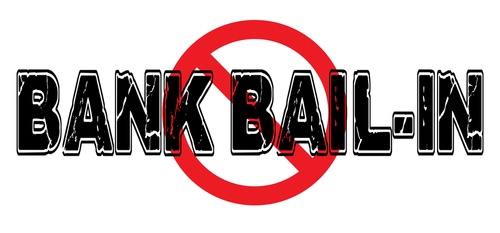Posted Feb 14, 2020 by Martin Armstrong
The public was outraged over the use of tax dollars to bail out banks during the 2007-2009 financial crisis. Congress passed the Dodd-Frank Wall Street Reform and Consumer Act of January 2010, which eliminated the option of bank bailouts but opened the door for bank bail-ins. The problem was that the banks in trouble were all the big boys in New York, which did not involve moms and pops on main street America as they saw it. The banks all repaid the $700 billion bailout, but this entire issue is being misrepresented by people promoting gold who advocate that you can lose all your money in banks so you better buy gold.
What they are not telling people is that you are covered by FDIC for $250,000. That was not changed by Dodd-Frank. Additionally, bail-ins would be political suicide and it would also undermine the entire economy. There is no way that Congress would ever vote for bail-ins in a crisis.
The situation in Europe is entirely different. Because they created the euro but did NOT consolidate the debts, the central objection came from Germany that they would not allow their money to be sent to bail out banks in Italy or Greece. Thus, the bail-in policy was adopted in Cyprus. The EU is by no means a single political government or economy. They integrated only to a limited extent. They still retain the separation between members with each even retaining their own central banks. Hence, the bail-in was NECESSARY in Europe because there is no actual central government as in the United States.
Consequently, in Europe they can still point the finger at individual states. That is not the way politics works in the United States. If they refused to bailout big banks, they would set off a contagion that would wipe out countless smaller banks throughout the nation. That would be a political disaster politically which is entirely different in Europe.


No comments:
Post a Comment